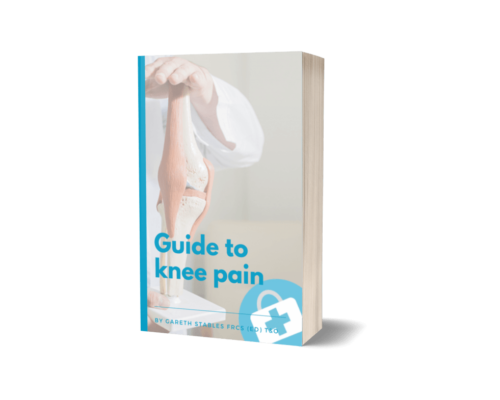Why do my knees click?
Noisy Knees. What you need to know about creaking joints.
The older you get the more noises you joints can make. Most of us will have experienced it from time to time. Knees that snap when you stand up, necks that crack when you turn your head or shoulders and elbows that pop when you’re stretching for something. I
Often the noises can be quite loud which can be worrying, so it’s understandable that many people fear that it’s a sign of something serious.
Why do my knees click?
Creaking joints may be loud, but they are usually not something to worry about.
“It’s normal for joints to click and as long as it’s not painful it’s usually OK” says knee specialist Mr Gareth Stables FRCS. “However, if the clicking is painful, then it might be a sign of some damage, and you might need some treatment” Mr Stables says.
Why are my knee joints so noisy?
Lots of people notice that their knee joints make more noise as they get older.
“This is because some of your joint surface cartilage, the articular cartilage, wears away as part of the ageing process” Mr Stables says. “As the surfaces get a little rougher you may notice more noise as they rub against each other.”
Noises from your joints can come and go. It can depend on the position of your knees, what you are doing or the time of day.
Creaking, cracking, or clicking joints are common. Mr Stables says he gets asked about them by his patients pretty much every day.

What’s causing the sound?
There are a few reasons that can make your knee joint snap and crack. One example is if you’re working out, doing repetitive exercises such as squats or lunges, you might notice a snapping sensation each time you bend your knee. This is usually a muscle that might be a bit tight rubbing against the bone. Sometimes tendons rubbing against the bone can create these sounds.
Rarely injuries such as cartilage tears or damage to the joint surface can lead to debris in your joint which can cause clicking noises. If you have other symptoms such as joint locking or pain, it’s best to get things checked by a specialist.
What about cracking knuckles?
When you crack your knuckles, the sound is usually coming from the compression naturally occurring nitrogen bubbles in your joints. When you crack your knuckles, the gas is released in a process called cavitation. The sound is nothing to worry about and won’t lead to joint problems such as arthritis in the future.
How can I avoid creaking joints?
One way to avoid creaking joints id to get up and move lots during the day. “Movement is key, the more you move the better your joints can lubricate themselves” says Mr Stables. “Try and build in some gentle stretching exercises into your daily routine too this can help with tight muscles and tendons”.
If you are suffering with painful clicking, then it’s always good to get things checked out. “Remember early diagnosis can mean more options when it comes to treating joint pain without the need for major surgery”.


